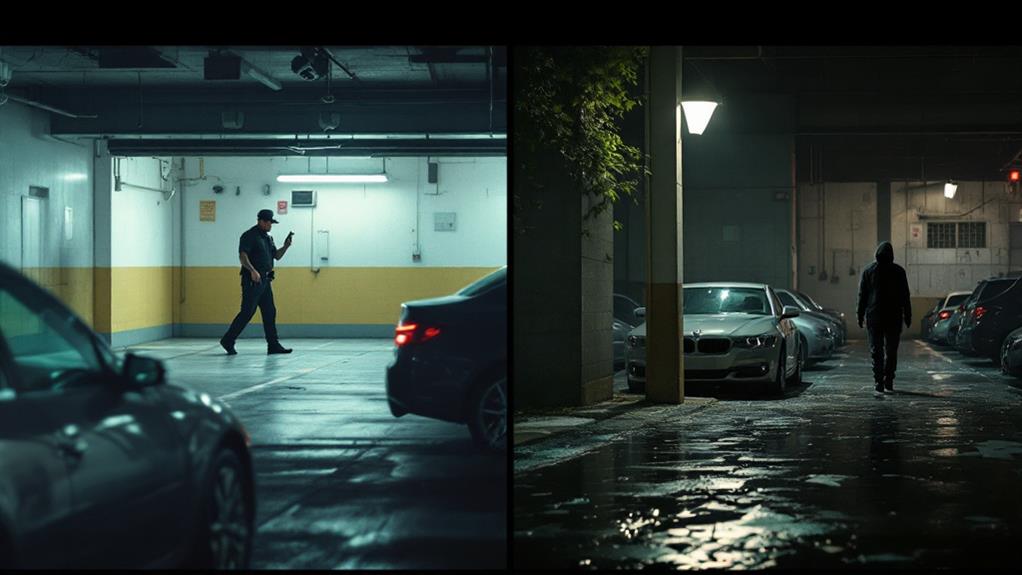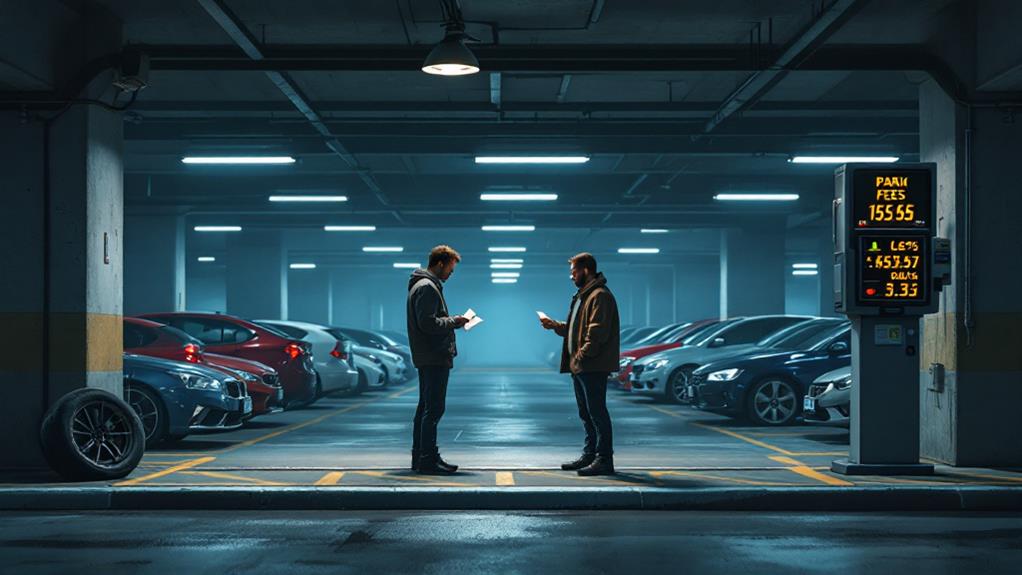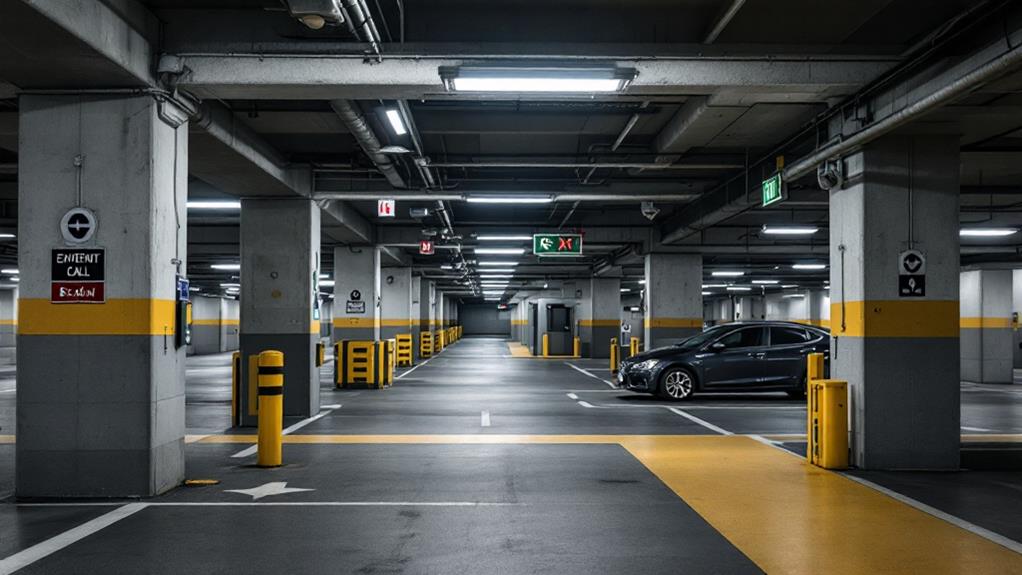Pros and Cons of Parking in a Public Garage
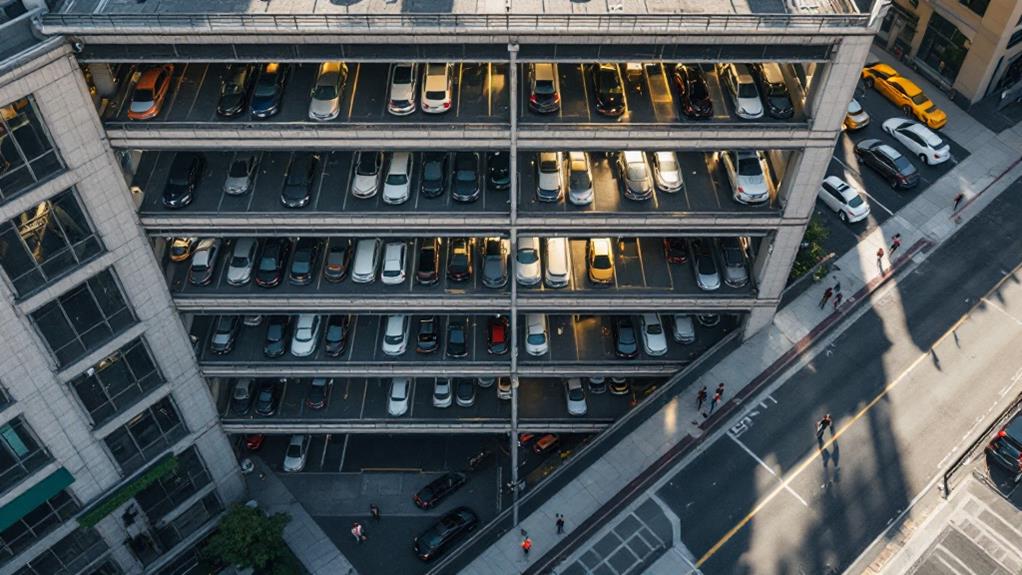
Parking in a public garage offers enhanced security and protection for your vehicle, shielding it from theft, vandalism, and weather-related damage. You'll enjoy convenient accessibility and shelter from the elements, potentially saving on long-term maintenance costs. However, you might face higher parking rates compared to street parking and increased congestion near garage entrances during peak hours. While public garages provide ample space for larger vehicles, you may encounter limited availability or long wait times. Consider your specific needs, budget, and location when deciding between garage and street parking. Exploring the full range of pros and cons can help you make the best choice for your situation.
Security and Protection
Peace of mind is a crucial advantage when parking in a public garage. You'll benefit from enhanced security measures designed to protect your vehicle and deter criminal activity. Surveillance cameras, ample lighting, and the presence of security guards create a safer environment compared to street parking.
When you park in a secure garage, your vehicle is less vulnerable to theft and vandalism. The controlled environment also shields your car from weather-related damage, preserving its condition. This protection is especially precious for larger or more expensive vehicles that might be at higher risk on the street.
Security personnel and monitoring systems in parking garages allow for quick response to any incidents. If something does happen, you're more likely to receive prompt assistance. The overall security protocols drastically reduce the risks associated with leaving your car unattended.
Convenience and Accessibility
While security offers peace of mind, the convenience of public garage parking can't be overstated. Unlike open parking lots, parking garages provide shelter from the elements, making it easier for you to enter and exit your vehicle comfortably during inclement weather. You won't have to worry about clearing snow, ice, or debris from your car, saving you time and effort.
Public parking garages often offer better accessibility than street parking or outdoor lots. You'll find your vehicle readily available and easily accessible at all times, which is particularly useful in busy urban areas. This accessibility extends to loading and unloading cargo, as you can typically park closer to elevators or stairways.
However, it is crucial to recognize that public garages may not offer the same level of convenience as private garages. You won't have direct access to your home, which can make routine maintenance and cleaning tasks less convenient. Additionally, you may need to maneuver through multiple levels or recall your parking spot, which can be challenging in larger facilities. Despite these minor drawbacks, the overall convenience and accessibility of public parking garages often outweigh the limitations, especially in crowded city centers.
Weather-Related Benefits
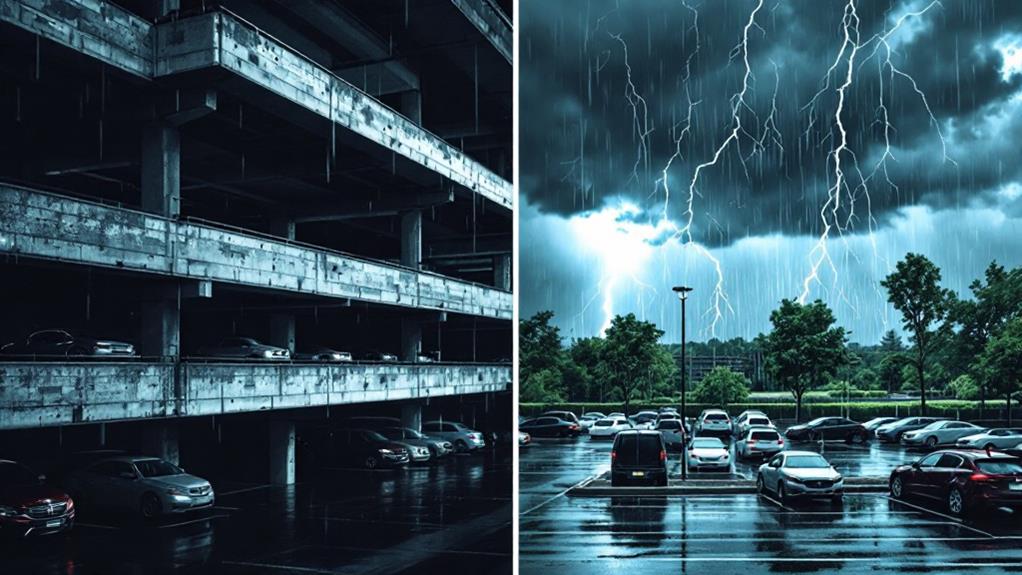
Public parking garages consistently offer significant weather-related benefits for your vehicle. When you choose a parking spot in a garage, you're protecting your car from various environmental factors that can cause wear and tear. Parking in a garage shields your vehicle from direct sunlight, rain, snow, and extreme temperature fluctuations, which can have a positive impact on its longevity and performance.
Here are four key weather-related benefits of parking in a public garage:
- Brake protection: Your brakes are less likely to corrode due to reduced moisture exposure.
- Battery preservation: The controlled environment helps extend your battery's life by avoiding extreme temperature changes.
- Enhanced system efficiency: Heating and cooling systems operate more efficiently when not subjected to outdoor temperature extremes.
- Tire longevity: Your tires are protected from UV-related dry rot and deterioration.
Cost Considerations
When considering parking in a public garage, cost is a significant factor to weigh against the weather-related benefits. You'll typically find that garage parking rates are higher than street parking, ranging from a few dollars per hour to $20 or more per day. The exact price depends on the location and amenities offered.
However, when weighting the pros and cons, it is crucial to factor in potential long-term savings. Garage parking can extend the lifespan of your vehicle's components, such as brakes, batteries, and tires, due to the protected environment. This can lead to reduced maintenance costs over time. Additionally, preserving your car's appearance by avoiding weather-related damage can help maintain its resale value.
If you're a tenant in a residential or commercial property, you might find that garage parking is included in your lease, offsetting the additional cost. While the immediate expense of garage parking may seem high, it is important to consider the convenience, security, and potential long-term financial benefits when making your decision. Ultimately, the choice depends on your individual circumstances and priorities.
Space and Vehicle Size
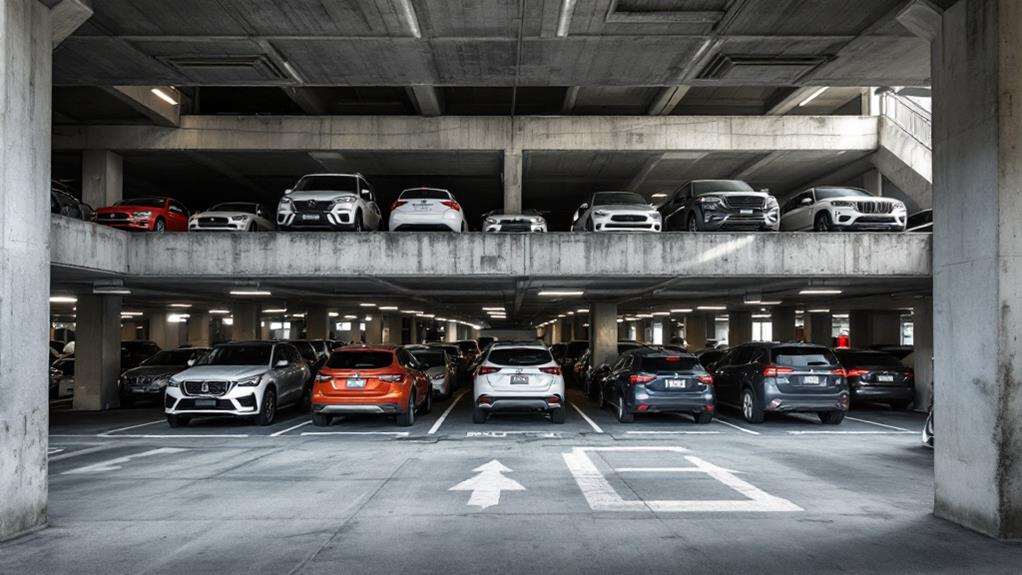
Considering the diverse range of vehicles on the road today, space is a crucial factor when choosing where to station. When you're driving a larger vehicle like an SUV or van, you'll find that parking garages often provide a more accommodating environment than street parking. These structures are designed with ample space, wider spots, and taller clearances, making it easier for you to park your car without the stress of tight squeezes.
Many garages offer specific advantages for drivers of larger vehicles:
- Designated areas for oversized vehicles
- Optimized layout for easier maneuvering
- Wider and taller parking spots
- Convenient loading and unloading of bulky items
If you frequently transport large items or need extra space when leaving your car, a parking garage can be a transformative experience. The increased room allows you to open doors fully, access your trunk with ease, and load or unload without obstruction. This is particularly beneficial if you use your vehicle for work or recreational activities that require hauling equipment. By choosing a parking garage, you're ensuring that your larger vehicle has the space it needs, reducing the risk of dings, scratches, and the frustration that often comes with cramped parking situations.
Traffic and Congestion Issues
Despite their convenience, parking garages can be a double-edged sword when it comes to traffic flow. As you approach a garage, you might notice increased congestion near the entrances and exits, especially during peak hours. This can lead to frustrating backups on nearby roads, disrupting your commute and the overall traffic pattern in the area.
Once inside, you may find yourself circling the garage repeatedly if signage is poor or the layout is inefficient. This not only wastes your time but also contributes to the congestion problem. During winter months, when street parking isn't an option, these issues can become even more pronounced as more drivers flock to garages.
To mitigate these problems, effective traffic control measures are essential. Look for garages with designated entry and exit lanes, as well as coordinated signals to manage traffic flow. However, keep in mind that not all garage operators work closely with local authorities to implement adequate traffic management strategies. When choosing a parking garage, consider its impact on local traffic and how well it handles congestion, especially during busy periods.
Reservation and Availability Options
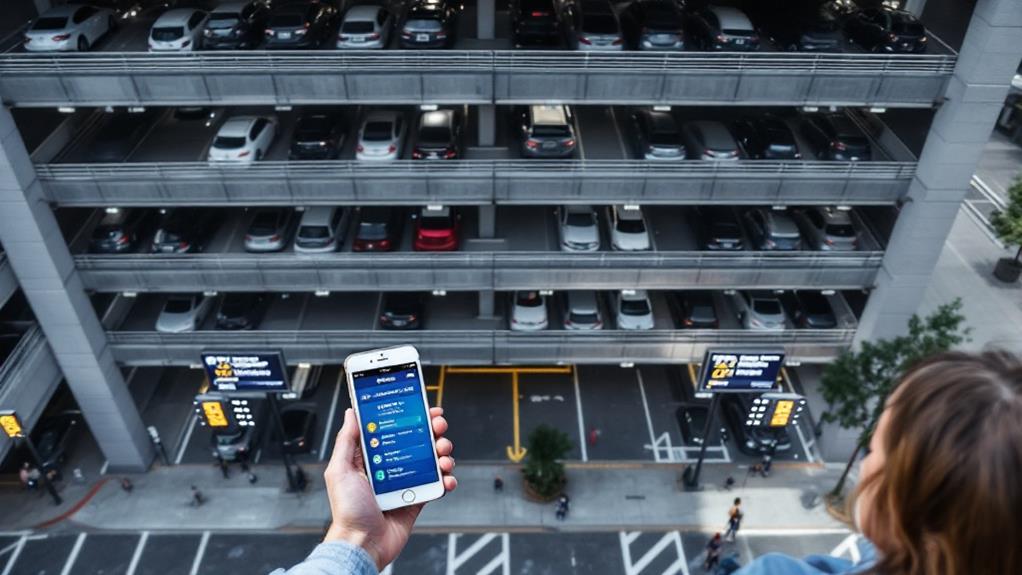
Public parking garages often roll out a variety of reservation and availability options to cater to different needs. You'll find that many offer both hourly parking without reservations and the ability to book longer stays in advance. This flexibility allows you to choose the option that best suits your schedule and preferences.
When it comes to reservations, you have several convenient methods at your disposal:
- Online booking through the garage's website
- Phone reservations with customer service
- Email booking for those who prefer written communication
- WhatsApp messaging for quick and easy reservations
By making a reservation, you're guaranteed a spot, which can be indispensable during busy periods. This peace of mind is especially meaningful when attending events or visiting popular areas where parking might be scarce. Additionally, most garages offer free cancellation for reserved parking, giving you the freedom to change your plans without financial penalty.
For shorter stays or spontaneous visits, hourly parking without reservations is typically available. This option provides convenience for quick errands or last-minute trips. However, during peak times, availability might be limited, so it's worth considering a reservation if you're planning a longer stay or visiting during a busy period.
